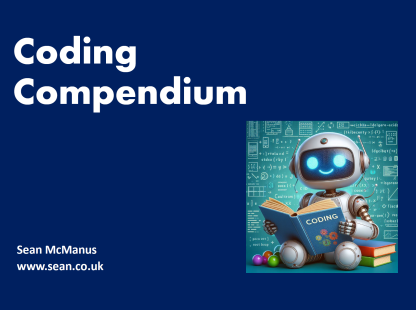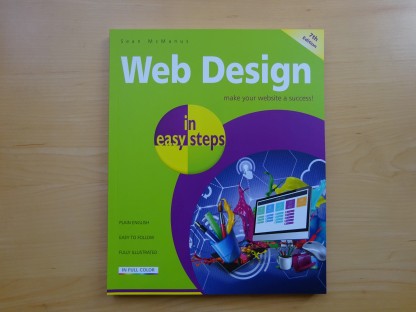
Coding Compendium
A free 100-page ebook collecting my projects and tutorials for Raspberry Pi, micro:bit, Scratch and Python. Simply join my newsletter to download it.
Making Music: November 2000
What's the future for the music economy? Sean McManus looks online.
Is it piracy or is it promotion? Advocates would have us believe that the Napster music-sharing software enables people to hear new music they might like, which they then buy if it's commercially available. The opposition claim that music sales drop in areas like college campuses where Napster is most widely used and that its very existence is promoting illegal copying. Websites such as Stopnapster.com are eroding Napster's database by uploading files that claim to be hit singles, but turn out to be sound effects or anti-piracy rants. Barenaked Ladies uploaded a spoken advert for their new album that was labelled as the new single and delighted in frustrating those who had waited for it to download.
Facing the inevitable piracy of their work online, many major bands including U2 and Radiohead are now embracing internet music downloads as a promotional tool. The Offspring are making their entire new album 'Conspiracy Of One' available for free from their website at www.offspring.com. Before 1998's album Americana was released, the MP3 single 'Pretty Fly (For a White Guy)' was reportedly downloaded 22 million times in ten weeks. To keep sales buoyant, the CD version of the new album includes a program enabling fans to access a restricted area of the website where they can get exclusive downloads, advanced tickets and webchats with the band. The band's singer Dexter Holland says, "We figure since we make our music available to everyone for free this will act as a special acknowledgement to our fans who go to the trouble to buy our CD."
This seems like a good way to marry MP3 downloads with CD sales. Free exposure is good, but bands can't afford to keep giving their music away. There must still be sales.
A new economic model is offered by www.openculture.org. It's based on the street performer protocol, which reasons that it's enough if some people pay to hear the busker, even if everybody else still benefits. Here's the idea: Bands register their work in progress at the website. Fans can then make a donation towards the project's release. Once the band has recouped its costs and whatever profit it wants to make from the project, the album is released in full for free distribution online. Donors get a preview before the whole internet gets access and the band gets paid after the website has taken its 10% cut. The band keeps all the rights to the recordings and is free to licence them for media use or conventional (offline) distribution.
Because the minimum donation is $1, fans could get the whole album for a fraction of the $12 they would pay now to buy MP3s or the $15 it would cost to buy the CD. But that only works if there are enough fans willing to pay. There's the risk that everyone will leave it for someone else to pay, knowing they can get the music for free once it's released. This attitude would either force artists to accept less money or would stop even those paying from getting hold of the album.
The internet is forcing artists and companies to reconsider their ownership and exploitation of copyright, the asset at the heart of the music industry. Some point out that the music industry that feels so threatened by technology is a product of recent times and its lifespan might be ending. Music survived for centuries without the industry, they reason.
Sites like Napster and Openculture could herald the start of a new era of "folk" music, where the popular music comes from people outside the industry and is shared between them. While traditional folk music was passed down over the years from one performer to another, tomorrow's folk music might be copied over the net from your studio.
But one thing that traditional folk music and today's offline music industry have in common is an in-built quality filter. Nobody's going to teach someone else a boring song they heard, less still perform it for pleasure, so its reach will be limited to who the composer can pester in the pub. It will wither and die. Record labels select only what they think will sell now. They make sure they have bands that look good and are professionally recorded, even if some resent their often dismissive attitude towards good songwriting.
The internet has neither of these filters. Nobody judges whether a song is worth sharing with friends or whether a band can provide a complete entertainment package before the artist uploads his MP3. Nobody is even checking the quality of recordings on many websites and some acts are succeeding because the concept reads well and the photos look right, but the MP3 turns out to be an infuriating waste of download time. Websites like Peoplesound are vetting every recording, but MP3.com (which pays the artist for each download) is open to all-comers and acts can go online just because they want to, even if they're not good enough for anyone to want to listen to.
When everyone can publish their own MP3, who can you trust and which bands will be most successful? The key will be promotion.
Although independent musicians might appear to have the same opportunities with the technology as the major players, the major labels of the future (perhaps companies like Peoplesound, if not today's industry majors) and established chart bands will always be able to throw most money at promotion
© Sean McManus. All rights reserved.
Visit www.sean.co.uk for free chapters from Sean's coding books (including Mission Python, Scratch Programming in Easy Steps and Coder Academy) and more!

A free 100-page ebook collecting my projects and tutorials for Raspberry Pi, micro:bit, Scratch and Python. Simply join my newsletter to download it.

Web Design in Easy Steps, now in its 7th Edition, shows you how to make effective websites that work on any device.

Power up your Microsoft Excel skills with this powerful pocket-sized book of tips that will save you time and help you learn more from your spreadsheets.

This book, now fully updated for Scratch 3, will take you from the basics of the Scratch language into the depths of its more advanced features. A great way to start programming.

Code a space adventure game in this Python programming book published by No Starch Press.

Discover how to make 3D games, create mazes, build a drum machine, make a game with cartoon animals and more!